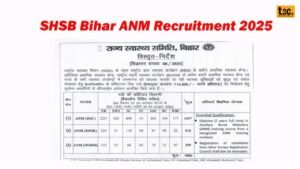How to Register an NGO in India: A Step-by-Step Guide

How to Register an NGO in India A Step-by-Step Guide
How to Register an NGO in India: A Step-by-Step Guide. Non-Governmental Organizations (NGOs) are vital contributors to India’s socio-economic development. From empowering marginalized communities to promoting education, healthcare, and environmental sustainability, NGOs operate at the grassroots level to drive real change. If you’re passionate about a cause and want to establish a formal structure to support it, registering an NGO is the first crucial step.
In India, there are three primary legal structures under which an NGO can be registered: as a Trust, a Society, or a Section 8 Company. The choice of structure depends on your objectives, scale of operation, and desired level of regulatory compliance.
Step 1: Choose the Type of NGO
The first decision you must make is the legal form of your NGO. A Trust is governed by the Indian Trusts Act, 1882 (or relevant state acts), and is typically used for charitable and religious purposes. A Society is registered under the Societies Registration Act, 1860, and is suited for NGOs involved in arts, culture, education, and public welfare. A Section 8 Company is registered under the Companies Act, 2013, and is meant for organizations with a strong focus on professionalism and scalability.
Each form has its own governance model. Trusts are managed by trustees, societies by a governing body or managing committee, and Section 8 companies by directors and members. While trusts are relatively easier to form, Section 8 companies enjoy higher credibility among donors and regulatory authorities.
Step 2: Finalize a Unique Name
Choosing an appropriate and unique name for your NGO is important. The name must not be identical to or closely resemble the name of any existing registered organization. For Section 8 companies, the name should not include terms like “Private Limited” or “Limited,” but should reflect the charitable purpose of the organisation.
Step 3: Prepare the Required Documents
The next step involves gathering and preparing the necessary documentation. These generally include:
-
Identity proof and address proof of the founder(s) and governing members
-
Passport-sized photographs
-
Proof of registered office address (such as rent agreement or No Objection Certificate from the property owner)
-
Memorandum of Association (MOA) and Rules & Regulations (for societies and Section 8 companies)
-
Trust Deed (for trusts)
-
Articles of Association (AOA) and MOA (for Section 8 companies)
-
Digital Signature Certificates (DSC) and Director Identification Numbers (DIN) for Section 8 companies
Ensuring the accuracy and completeness of these documents is critical to avoid delays in registration.
Step 4: Register the NGO
The registration process differs depending on the legal structure you choose.
To register a Trust, the trust deed must be drafted and presented before the local Sub-Registrar along with required documents. The registration is usually completed within one or two weeks.
For a Society, you must submit the MOA, Rules & Regulations, and details of founding members (at least seven for state-level, and typically from different states for national-level societies) to the Registrar of Societies. The process can take four to eight weeks depending on the state.
If you’re forming a Section 8 Company, you must apply online via the Ministry of Corporate Affairs (MCA) portal. The steps include applying for the Digital Signature Certificate (DSC), obtaining Director Identification Number (DIN), name reservation through the RUN (Reserve Unique Name) form, and finally, submitting the SPICe+ (Simplified Proforma for Incorporating Company Electronically Plus) form along with all attachments. Once approved, you will receive a Certificate of Incorporation.
Step 5: Apply for PAN, Open a Bank Account, and Get Tax Exemptions
After successful registration, apply for a Permanent Account Number (PAN) in the name of your NGO. This is essential for financial operations and regulatory compliance. Open a dedicated bank account for the NGO to ensure transparency and separation of personal and organizational funds.
Next, apply for 12A registration with the Income Tax Department to avail income tax exemption on the NGO’s earnings. Additionally, apply for 80G certification so that donors to your organization can claim tax deductions for their contributions.
Both 12A and 80G are valid for five years and must be renewed accordingly. These certifications significantly improve your NGO’s credibility and help attract more donors and grants.
Step 6: Maintain Legal and Financial Compliance
Once your NGO is operational, it must follow compliance norms based on its structure.
Keeping transparent financial records, holding regular board meetings, and updating your organization’s goals and activities are part of maintaining good standing with regulatory authorities.
Conclusion
How to Register an NGO in India: A Step-by-Step Guide. Starting an NGO in India involves a structured legal process but is an immensely rewarding journey. With the right documentation, legal clarity, and purpose, you can transform your vision for social change into a legitimate, recognized entity.
Stay tuned on our website, as if any official information pops up then we will update you in minutes! If you want all the latest updates on time, then join our student community on WhatsApp!
Choose the right career yourself by booking personal guidance from professionals on Mytagapp.com









